BusinessEurope Headlines No. 2020-41
DG Beyrer discusses European priorities with the Federation of Austrian Industries’ Executive Board
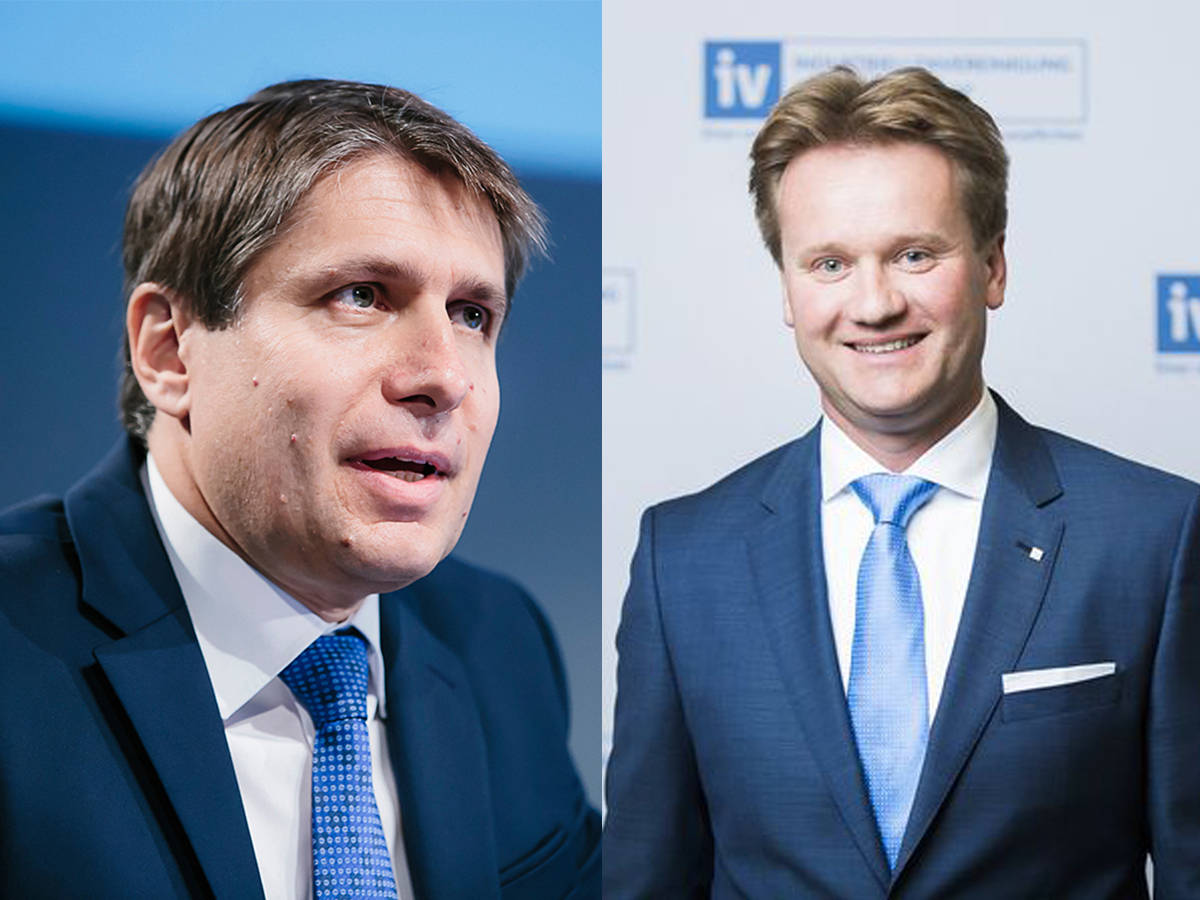
On 3 December Director General Markus J. Beyrer had the pleasure to speak at the meeting of the Executive Board of the Federation of Austrian Industries (Industriellenvereinigung). Intervening after the European Commissioner for Budget and Administration, Johannes Hahn, DG Beyrer shared the industry perspective on current European priorities like the adoption of the Multiannual Financial Framework and the need for a strategic and broad strengthening of Europe’s industrial competitiveness to recover from the current economic crisis. “It will be crucial to spend the recovery package money well, improving Europe’s economic structure and to link the Green Deal to an ambitious Industrial Strategy”, urged Beyrer. Regarding global trade relations, Beyrer particularly stressed the need to make use of the current momentum to establish a strategic dialogue with the new US administration to address irritants that have arose in the bilateral trade relationship as well as the cooperation on multilateral level, most importantly in the World Trade Organisation.
Contact: Jasmin Ploner
Our comment:
Post-COVID world makes new EU-Africa Strategy even more urgent
By Benedikt Wiedenhofer, Adviser for International Relations
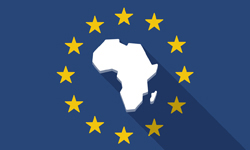 2020 has been a decisive year for EU-Africa relations. In March, the European Commission published its communication “Towards a comprehensive strategy with Africa”, with the aim of adopting a joint strategy with the African Union at the EU Africa Business Forum. While discussions on this joint strategy were intensifying, negotiations on the Post-Cotonou Agreement and on broadening the Economic Partnership Agreement with Eastern and Southern Africa moved on. The former were concluded at political level in early December.
2020 has been a decisive year for EU-Africa relations. In March, the European Commission published its communication “Towards a comprehensive strategy with Africa”, with the aim of adopting a joint strategy with the African Union at the EU Africa Business Forum. While discussions on this joint strategy were intensifying, negotiations on the Post-Cotonou Agreement and on broadening the Economic Partnership Agreement with Eastern and Southern Africa moved on. The former were concluded at political level in early December.
The direct and indirect disruptions caused by the COVID-19 pandemic, which eventually led to the postponement of the EU-Africa summit, make a redefinition of EU-Africa relations even more urgent: With the GDP of Sub-Saharan Africa expected to fall by 3% in 2020, the region is experiencing its first recession in 25 years. This could push up to 40 million people in the region into extreme poverty. In the EU, the pandemic has had devastating effects as well, which has triggered a debate on how European companies can make their supply chains more resilient to future shocks.
In this changed global environment, the EU and Africa need to define ways to work jointly towards reigning in the pandemic, achieving a quick economic recovery as well as more resilient, sustainable, green and prosperous societies in the long run. Implementing the African Continental Free Trade Area and broadening the EU’s Economic Partnership Agreements with African regions will make our economies more dynamic. A closer-public-private dialogue at all levels will help improve the investment climate in Africa. Working together on education and professional training will equip people with the skills of the future. Taking a Team Europe approach to our cooperation will help mobilise the necessary resources and expertise. Finally, achieving the sustainable development goals and a green transition remain key to make sure these solutions work for everybody. The European business community stands ready to play its role in this process.
Footnote: Unfortunately, an informal EU-Africa leaders’ meeting, which was scheduled for 9 December, was cancelled last-minute. BusinessEurope sent a letter to EU leaders ahead of the meeting.
![]() Contact: Benedikt Wiedenhofer
Contact: Benedikt Wiedenhofer
Renewable energy corporate sourcing
 “Latest figures and trends on corporate renewable Power Purchase Agreements are promising. It shows once again that industry-led initiatives must have their full space when discussing the framework conditions that enable Europe to reach climate ambitions”, said Markus J. Beyrer, BusinessEurope Director General, at the opening of the Renewable Energy Corporate Sourcing Week, organised by Wind Europe and SolarPower Europe on 7 December. Whilst obstacles remain, the annual Power Purchase Agreements (PPAs) capacity has constantly increased in Europe, reaching 136 deals in 13 countries since 2013. In his speech, Beyrer also commented more broadly on the need to focus on the “how” questions to make the green deal a success, on the financing of the transition and on the global picture.
“Latest figures and trends on corporate renewable Power Purchase Agreements are promising. It shows once again that industry-led initiatives must have their full space when discussing the framework conditions that enable Europe to reach climate ambitions”, said Markus J. Beyrer, BusinessEurope Director General, at the opening of the Renewable Energy Corporate Sourcing Week, organised by Wind Europe and SolarPower Europe on 7 December. Whilst obstacles remain, the annual Power Purchase Agreements (PPAs) capacity has constantly increased in Europe, reaching 136 deals in 13 countries since 2013. In his speech, Beyrer also commented more broadly on the need to focus on the “how” questions to make the green deal a success, on the financing of the transition and on the global picture.
Contact: Alexandre Affre
Trade and climate: striking a good balance
 On 7 December Luisa Santos, Deputy Director General, participated in a hearing of the European Parliament’s Committee on International Trade to discuss how trade policy can be used to advance the objectives at the Green Deal. BusinessEurope is happy to engage in this debate and present the concrete ideas that have been laid out in our “What trade can do for climate” paper earlier this year. While we are convinced that trade policy together with climate diplomacy can play an important role to get other major economies to match Europe’s climate ambition, we need to strike a good balance between economic and environmental objectives. “Trade can only support climate efforts if bilateral and multilateral agreements can materialise. The economic benefits of the trade agreements are essential to convince trading partners to accept more ambitious commitments on sustainability and climate”, Santos said. The second important point is maintaining the competitiveness of European companies. “As long as the level playing field with global competitors is not balanced, we need to ensure that our companies’ competitiveness is not undermined. For instance, when discussing unilateral action like the Carbon Border Adjustment Mechanism, we should look at full compatibility with the World Trade Organisation and the co-existence of well-functioning flanking measures (e.g. free allowances)”, she added.
On 7 December Luisa Santos, Deputy Director General, participated in a hearing of the European Parliament’s Committee on International Trade to discuss how trade policy can be used to advance the objectives at the Green Deal. BusinessEurope is happy to engage in this debate and present the concrete ideas that have been laid out in our “What trade can do for climate” paper earlier this year. While we are convinced that trade policy together with climate diplomacy can play an important role to get other major economies to match Europe’s climate ambition, we need to strike a good balance between economic and environmental objectives. “Trade can only support climate efforts if bilateral and multilateral agreements can materialise. The economic benefits of the trade agreements are essential to convince trading partners to accept more ambitious commitments on sustainability and climate”, Santos said. The second important point is maintaining the competitiveness of European companies. “As long as the level playing field with global competitors is not balanced, we need to ensure that our companies’ competitiveness is not undermined. For instance, when discussing unilateral action like the Carbon Border Adjustment Mechanism, we should look at full compatibility with the World Trade Organisation and the co-existence of well-functioning flanking measures (e.g. free allowances)”, she added.
![]() Contact: Jasmin Ploner
Contact: Jasmin Ploner
EU-UK: we need to prepare for significant changes
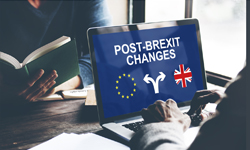 Negotiations on the future EU-UK relationship are ongoing and the European business community is confident that an agreement can still be reached in time. But with less than one month until the end of the transition period, we need to be prepared for all possible scenarios. In a letter sent to EU leaders ahead of the European Council meeting of 10 December, BusinessEurope emphasises that an agreement is essential to mitigate the negative impact of the UK leaving the Single Market and the customs union and creating a solid platform to build our future cooperation. While it expresses confidence that an agreement is still possible, the letter also warns that significant changes will occur at the end of the year, regardless of the outcome of the ongoing negotiations. Therefore, public authorities at national and EU level should put in place all necessary means to respond to potential disruptions and establish dedicated contact points that business can use to address problems. Moreover, the letter asks the EU to adopt measures to mitigate the impact of a potential no-deal scenario with regards to the free flow of personal data, customs, transport, financial services and the mobility of workers.
Negotiations on the future EU-UK relationship are ongoing and the European business community is confident that an agreement can still be reached in time. But with less than one month until the end of the transition period, we need to be prepared for all possible scenarios. In a letter sent to EU leaders ahead of the European Council meeting of 10 December, BusinessEurope emphasises that an agreement is essential to mitigate the negative impact of the UK leaving the Single Market and the customs union and creating a solid platform to build our future cooperation. While it expresses confidence that an agreement is still possible, the letter also warns that significant changes will occur at the end of the year, regardless of the outcome of the ongoing negotiations. Therefore, public authorities at national and EU level should put in place all necessary means to respond to potential disruptions and establish dedicated contact points that business can use to address problems. Moreover, the letter asks the EU to adopt measures to mitigate the impact of a potential no-deal scenario with regards to the free flow of personal data, customs, transport, financial services and the mobility of workers.
![]() Contact: Benedikt Wiedenhofer
Contact: Benedikt Wiedenhofer
Free trade agreements are key for Europe’s economic recovery
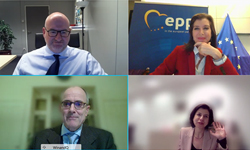 “The negotiation of new free trade agreements (FTAs) and the implementation of existing ones is key for the EU’s economic recovery from the COVID-19 pandemic. FTAs help companies diversify their export markets and supply chains and thus become more resilient to future shocks”, said Luisa Santos, Deputy Director General, at a BusinessEurope webinar on the implementation of EU free trade agreements. At the event, which was moderated by the Chair of the BusinessEurope’s FTAs Working Group Winand Quaedvlieg, Santos presented the main policy recommendations of the position paper that BusinessEurope recently published on the topic. Following her intervention, Denis Redonnet, EU Chief Trade Enforcement Officer, and MEP Anna-Michelle Asimakopoulou, Vive-Chair of the European Parliament’s Committee on International Trade, set out their priorities to maximise the benefits derived from EU FTAs. “Recently, the EU has taken many important actions to improve the implementation and enforcement of our FTAs. European business stands ready to support the European Commission in its efforts to ensure that companies of all sizes seize the opportunities our FTAs offer”, Santos added.
“The negotiation of new free trade agreements (FTAs) and the implementation of existing ones is key for the EU’s economic recovery from the COVID-19 pandemic. FTAs help companies diversify their export markets and supply chains and thus become more resilient to future shocks”, said Luisa Santos, Deputy Director General, at a BusinessEurope webinar on the implementation of EU free trade agreements. At the event, which was moderated by the Chair of the BusinessEurope’s FTAs Working Group Winand Quaedvlieg, Santos presented the main policy recommendations of the position paper that BusinessEurope recently published on the topic. Following her intervention, Denis Redonnet, EU Chief Trade Enforcement Officer, and MEP Anna-Michelle Asimakopoulou, Vive-Chair of the European Parliament’s Committee on International Trade, set out their priorities to maximise the benefits derived from EU FTAs. “Recently, the EU has taken many important actions to improve the implementation and enforcement of our FTAs. European business stands ready to support the European Commission in its efforts to ensure that companies of all sizes seize the opportunities our FTAs offer”, Santos added.
Contact: Benedikt Wiedenhofer, Eleonora Catella
More important than ever to ensure cohesion funding is well spent
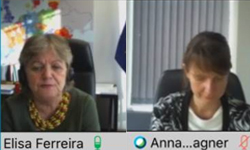 Despite the urgency of getting funding flowing fast to help our struggling economies, we must also ensure that the money is well spent on well-thought-out projects with clear and demonstrable added value. That was the key message from BusinessEurope to the Commissioner in charge of Cohesion and Reforms, Elisa Ferreira, when she attended the European Commission’s Structured Dialogue for Structural and Investment Funds Partners’ Group of Experts on December 8. This will be of particular importance in light of the fact that additional funding to the tune of €47.5 bn will be made available through the React-EU programme, a component of the EU’s overall Recovery Instrument that will work through the existing cohesion policy apparatus, in the coming years.
Despite the urgency of getting funding flowing fast to help our struggling economies, we must also ensure that the money is well spent on well-thought-out projects with clear and demonstrable added value. That was the key message from BusinessEurope to the Commissioner in charge of Cohesion and Reforms, Elisa Ferreira, when she attended the European Commission’s Structured Dialogue for Structural and Investment Funds Partners’ Group of Experts on December 8. This will be of particular importance in light of the fact that additional funding to the tune of €47.5 bn will be made available through the React-EU programme, a component of the EU’s overall Recovery Instrument that will work through the existing cohesion policy apparatus, in the coming years.
Contact: Malthe Munkøe
European social partners call for more progress on provision of childcare
 "Accessible, affordable and quality childcare facilities are essential for parents to work. And given women are still mainly responsible for caring duties, childcare is particularly important for gender equality". This is one of the key messages of European social partners published in a joint statement on childcare on 2 December. Social partners also encouraged ministers, who discussed gender equality at the video call of the Employment, Social Policy, Health and Consumer Affairs Council (EPSCO) on 3 December, to step up their efforts in this area, as well as supporting a more ambitious EU target of at least 50% of children under 3 years old in childcare. European social partners also called on the European Commission to channel funding to those countries that need it and to include measures on childcare in the forthcoming action plan on the pillar of social rights.
"Accessible, affordable and quality childcare facilities are essential for parents to work. And given women are still mainly responsible for caring duties, childcare is particularly important for gender equality". This is one of the key messages of European social partners published in a joint statement on childcare on 2 December. Social partners also encouraged ministers, who discussed gender equality at the video call of the Employment, Social Policy, Health and Consumer Affairs Council (EPSCO) on 3 December, to step up their efforts in this area, as well as supporting a more ambitious EU target of at least 50% of children under 3 years old in childcare. European social partners also called on the European Commission to channel funding to those countries that need it and to include measures on childcare in the forthcoming action plan on the pillar of social rights.
Contact: Rebekah Smith
SMEs are key for the green transition
 “SMEs are key drivers of green and inclusive growth and need to be supported in playing a central role in the EU sustainability goals”, stated Anna-Lena Bohm, Chair of BusinessEurope’s “Entrepreneurship and SME” Committee during the SME Envoy Network online meeting on 8 December. She explained that investments and access to finance are of critical importance to make the green transition possible, and in this context sustainable finance can play a major role in channelling private investments towards sustainable growth. She added that only if implemented in a proportionate, practicable and well-designed way, the Taxonomy Regulation can enable such a transformation. “The ongoing implementation phase is particularly relevant for SMEs, as they are part of the supply chain of companies that are within the scope of the Taxonomy”, she highlighted. Bohm also stressed that it is important that taxonomy’s requirements and the sustainable finance agenda are fit-for-purpose and avoid additional and cumulative bureaucratic burdens for corporates, in particular SMEs.
“SMEs are key drivers of green and inclusive growth and need to be supported in playing a central role in the EU sustainability goals”, stated Anna-Lena Bohm, Chair of BusinessEurope’s “Entrepreneurship and SME” Committee during the SME Envoy Network online meeting on 8 December. She explained that investments and access to finance are of critical importance to make the green transition possible, and in this context sustainable finance can play a major role in channelling private investments towards sustainable growth. She added that only if implemented in a proportionate, practicable and well-designed way, the Taxonomy Regulation can enable such a transformation. “The ongoing implementation phase is particularly relevant for SMEs, as they are part of the supply chain of companies that are within the scope of the Taxonomy”, she highlighted. Bohm also stressed that it is important that taxonomy’s requirements and the sustainable finance agenda are fit-for-purpose and avoid additional and cumulative bureaucratic burdens for corporates, in particular SMEs.
Contact: Daniele Olivieri
Business-universities exchange for an efficient Open Science Agenda
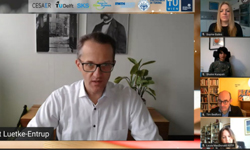 “Open Research Data has a huge potential to enhance EU’s economic competitiveness and interests, and the European Commission is well advised to promote it”, stressed Norbert Luetke-Entrup, Chair of BusinessEurope’s Research and Innovation Working Group, at the “Openness and commercialisation: how the two can go together” event on 4 December. Luetke-Entrup explained that the sharing of data makes sense not only for academic research, but quite frequently also in a business context. However, he noted that regulators should refrain from enforcing a one-size-fits-all approach. “The question whether research data are open or not cannot be a matter of black and white. We need to accept different shades of openness, so as to accommodate European interests such as the promotion of our industrial competitiveness or the protection of mission-critical know-how, e.g. in quantum computing or quantum communication”, he pointed out. The openness of data, Luetke-Entrup added, “needs to be decided case-by-case based on a flexible framework, and applicants for Horizon Europe projects should not be penalized for not making their data fully open”, he concluded, referring to the BusinessEurope’s position.
“Open Research Data has a huge potential to enhance EU’s economic competitiveness and interests, and the European Commission is well advised to promote it”, stressed Norbert Luetke-Entrup, Chair of BusinessEurope’s Research and Innovation Working Group, at the “Openness and commercialisation: how the two can go together” event on 4 December. Luetke-Entrup explained that the sharing of data makes sense not only for academic research, but quite frequently also in a business context. However, he noted that regulators should refrain from enforcing a one-size-fits-all approach. “The question whether research data are open or not cannot be a matter of black and white. We need to accept different shades of openness, so as to accommodate European interests such as the promotion of our industrial competitiveness or the protection of mission-critical know-how, e.g. in quantum computing or quantum communication”, he pointed out. The openness of data, Luetke-Entrup added, “needs to be decided case-by-case based on a flexible framework, and applicants for Horizon Europe projects should not be penalized for not making their data fully open”, he concluded, referring to the BusinessEurope’s position.
![]() Contact: Carolina Vigo
Contact: Carolina Vigo
Domestic Advisory Groups: relevant monitoring of free trade agreements
 “The domestic advisory groups (DAGs) play an important role in monitoring the sustainability of the economic relations between the EU and its preferential trading partners, and they should be consulted on relevant issues,” said Benedikt Wiedenhofer, Adviser in the International Relations Department of BusinessEurope, at a discussion on the implementation of international labour and social standards in EU free trade agreements (FTAs) on 7 December. The meeting, organised by the German Ministry of Labour and Social Affairs, brought together members of EU DAGs under different EU FTAs. DAGs are consultative bodies established under the trade and sustainable development (TSD) chapters of modern EU FTAs. Consisting of representatives of employers, workers and broader civil society, their task is scrutinising whether the EU and its partner countries respect the provisions of the TSD chapter. Participants exchanged their views on the performance of DAGs with regards to monitoring the implementation of labour and social provisions in FTAs. Wiedenhofer spoke about his experience as member of the EU-Central America DAG. “Although progress is often slow, in many partner countries it can be seen clearly over longer periods of time. Therefore, it is key that DAGs keep providing their recommendations to policymakers in the EU and its trading partners”, Wiedenhofer added.
“The domestic advisory groups (DAGs) play an important role in monitoring the sustainability of the economic relations between the EU and its preferential trading partners, and they should be consulted on relevant issues,” said Benedikt Wiedenhofer, Adviser in the International Relations Department of BusinessEurope, at a discussion on the implementation of international labour and social standards in EU free trade agreements (FTAs) on 7 December. The meeting, organised by the German Ministry of Labour and Social Affairs, brought together members of EU DAGs under different EU FTAs. DAGs are consultative bodies established under the trade and sustainable development (TSD) chapters of modern EU FTAs. Consisting of representatives of employers, workers and broader civil society, their task is scrutinising whether the EU and its partner countries respect the provisions of the TSD chapter. Participants exchanged their views on the performance of DAGs with regards to monitoring the implementation of labour and social provisions in FTAs. Wiedenhofer spoke about his experience as member of the EU-Central America DAG. “Although progress is often slow, in many partner countries it can be seen clearly over longer periods of time. Therefore, it is key that DAGs keep providing their recommendations to policymakers in the EU and its trading partners”, Wiedenhofer added.
Contact: Benedikt Wiedenhofer
Calendar 
- 1 January: Portuguese Presidency of the Council of the European Union
- 22-25 February: EU Industry Week 2021
Not yet a subscriber? Register here.
Reminder: please have a look at our privacy policy